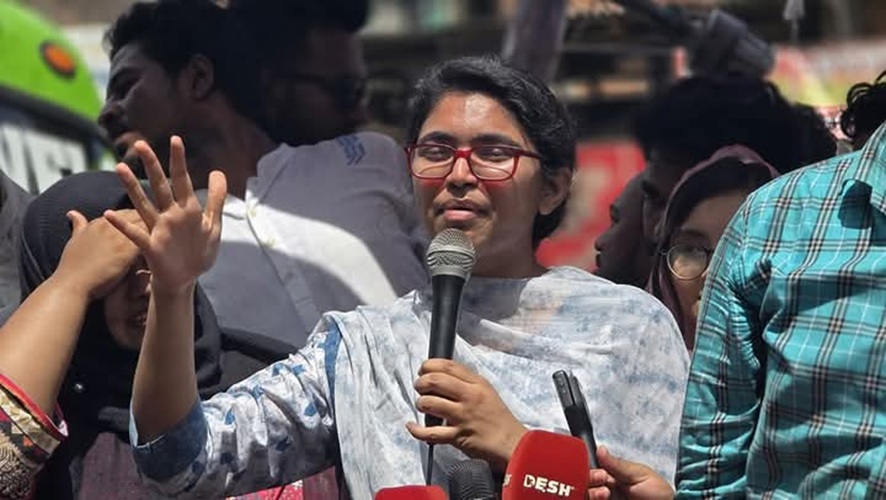Tasnim Jara, senior joint member-secretary of the National Citizen’s Party (NCP), Bangladesh’s newly formed political party, today met a key US State Department official for breakfast at a Five Star hotel in Kathmandu, Northeast News has reliably learnt.
Jara met Eric Meyer, a career member of the Senior Foreign Service, is the Senior Bureau Official for the Bureau of South and Central Asian Affairs.
Meyer is responsible for overseeing the bureau and coordinating the Administration’s policy priorities throughout South and Central Asia, including in Afghanistan, Bangladesh, Bhutan, India, Kazakhstan, Kyrgyzstan, Maldives, Nepal, Pakistan, Sri Lanka, Tajikistan, Turkmenistan and Uzbekistan”.
Bangladesh security agency sources said that Jara’s visit to Kathmandu was “largely clandestine” and was undertaken at the behest of US officials.
Jara flew out of Dhaka’s Hazrat Shah Jalal International Airport on a Bangladesh Biman flight (No. BG-371) on August 17.
Jara and Meyer met for breakfast at Kathamandu’s Marriott Bonvoy hotel. This meeting lasted for over two hours and may have been followed by other meetings.
Jara had two other co-passengers, Bangladesh Nationalist Party (BNP) Standing Committee member Amir Khasru Mahmud Chowdhury and Chittagong Hill Tracts Ministry Adviser Supradeep Chakma.
Chowdhury and Chakma were in Kathmandu to attend a public programme ‘Impacts of Climate Change, Disaster Risks, and the Role of Parliamentarians’, held on the sidelines of the Hindu Kush Himalaya Parliamentarians’ Meet 2025.
ALSO READ: Meghalaya hands appointment letters to 445 Civil Defence, Home Guards recruits
Northeast News could not establish what was discussed in the Jara-Meyer meeting, said to be of a clandestine nature, but its timing was important even as there is considerable uncertainty over elections in Bangladesh, which Chief Adviser Mohammad Yunus had earlier indicated would be held in February 2026.
However, Bangladeshi government officials said that given the uncertainty over political conditions in general and the elections in particular, Meyer “might have indicated the reasons for the US to now explain a change in tack” in a country where it was, till recently, actively but secretly pursuing a regional geopolitical agenda.















